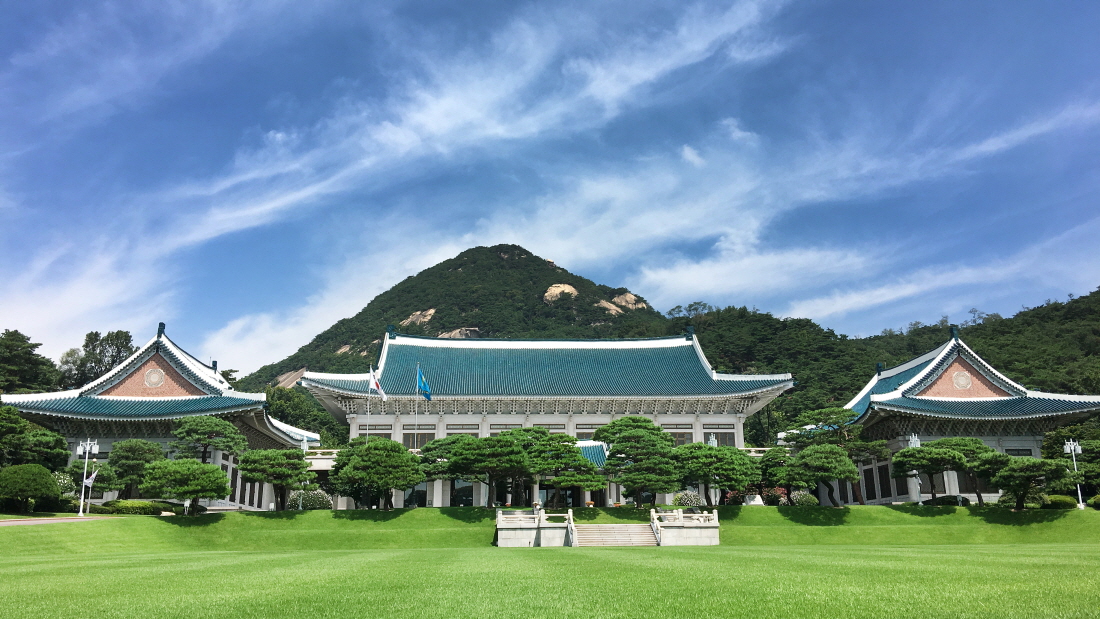이 웹사이트는 제19대 대통령 임기 종료에 따라 대통령기록관이 「대통령기록물 관리에 관한 법률」에 의해 이관받아 서비스하는 대통령기록물입니다. 자료의 열람만 가능하며 수정 · 추가 · 삭제는 불가능합니다.
다만, 「개인정보보호법」에 의하여 개인의 정보를 보호받기 원하시는 분은 관련 내용(요청자, 요청내용, 연락처, 글위치)을 대통령 웹기록물 담당자(044-211-2253)에게 요청해 주시면 신속히 검토하여 조치해 드리겠습니다. 감사합니다.
SPEECHES & REMARKS
BRIEFINGS
Address by President Moon Jae-in at G20 Summit Session II: Climate Change and Environment

Honorable Chair, thank you.
A few weeks ago, the Nobel Committee selected scientists who had identified the causes of climate change and developed a model to predict global warming as this year’s laureates in Physics. Science has long pointed to climate change’s causes, and the Intergovernmental Panel on Climate Change is warning that we no longer have time for doubts.
Korea will stay in lockstep with the push for carbon neutrality. Last year, we declared “2050 Carbon Neutrality” and legislatively approved it by enacting the Framework Act on Carbon Neutrality. Moreover, private and public sector professionals took part in the Presidential Committee on Carbon Neutrality, which was established to set 2050 carbon neutrality scenarios. Based on its scenarios, we decided to enhance Korea’s 2030 Nationally Determined Contributions, which will be announced at COP26.
Korea is boldly pushing policies to reduce its dependence on coal. Following the inauguration of my Administration, eight coal-fired power plants were shut down earlier than originally scheduled. By the end of this year, two additional plants are scheduled to close. We will put a complete end to coal-fired power generation by 2050. Moreover, official financial support for the construction of new coal-fired power plants overseas has already been suspended.
We are also redoubling our efforts to reduce methane emissions. Although Korea’s methane emissions are relatively low, we actively agree with relevant reduction efforts and will join the Global Methane Pledge.
The new industries and jobs being created through Korea’s Green New Deal are the most important driving forces for achieving carbon neutrality. Numerous Korean businesses are actively taking part in the RE100 project, which calls for the exclusive use of renewable energy. For its part, the Korean Government will provide support for private sector's technological development and investments to accelerate carbon neutrality. In particular, Korea places emphasis on the hydrogen economy and is now at the forefront when it comes to utilizing hydrogen. We will also strengthen global cooperation for the hydrogen economy.
Building upon Korea’s growth experience, we will join developing countries’ efforts to achieve carbon neutrality. We will increase the green-related portion of our official development assistance and continue financial backing for climate change response through the Green Climate Fund and Global Green Growth Institute. While doing so, we will strengthen cooperation with developing countries in green technology through the Climate Technology Centre and Network.
Excellencies,
We have 30 more years until 2050, but the first 10 years are crucial. How we implement the 2030 NDC goal will determine the success or failure of 2050 carbon neutrality. I believe in earth’s vitality and strong resilience. We have the proof that actions matter as the deadline for the climate clock was extended after the COVID-19 pandemic curtailed our activities.
I am confident that the G20’s solidarity and cooperation will build a sustainable world.
Thank you.



